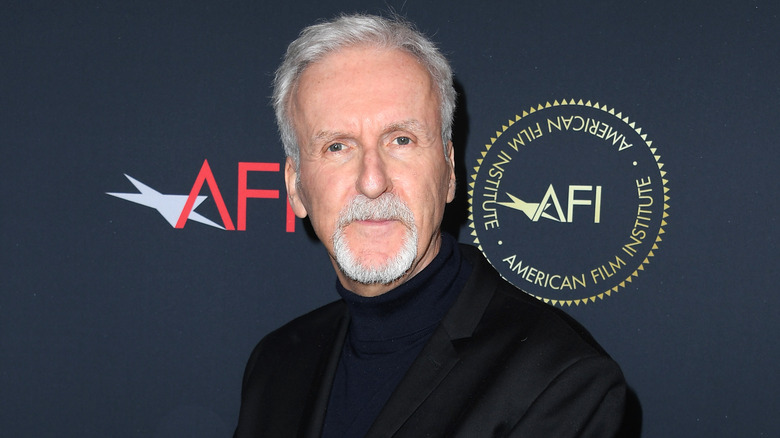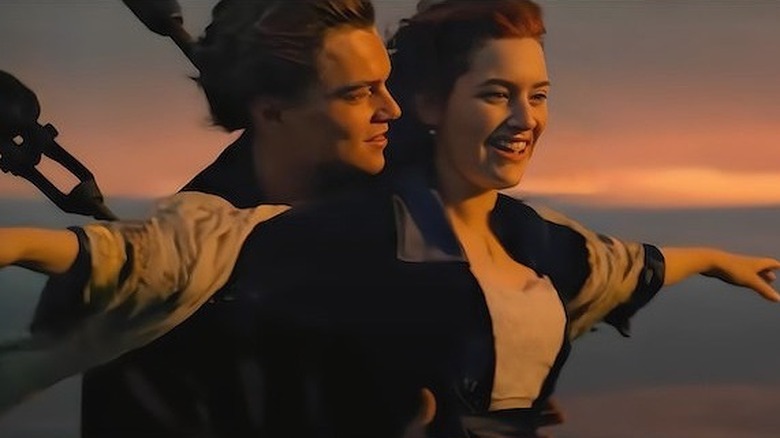James Cameron Made Titanic So Hollywood Would Fund His Dive To The Shipwreck
While oceanic personnel continues their search for a five-person tourist submersible that mysteriously disappeared on its way to view the wreckage of the RMS Titanic in the depths of the Atlantic, director James Cameron's movie blockbuster about the legendary sunken ship has once again entered the public conversation.
Cameron, of course, is one of the highest-profile figures to make the treacherous dive to examine what's left of the deteriorating passenger liner, which is located 12,500 feet below sea level about 350 miles off the coast of Newfoundland, Canada. The price tag for an individual to ride the missing submersible — the OceanGate Titan — ran at about $250,000, so it's understandable in hindsight why Cameron was looking for a sponsor of sorts before he made "Titanic" to fund what equated to more of a personal trip than a business one.
"I made 'Titanic' because I wanted to dive to the shipwreck, not because I particularly wanted to make the movie," Cameron told Playboy Magazine in 2009. "The Titanic was the Mount Everest of shipwrecks, and as a diver I wanted to do it right. When I learned some other guys had dived to the Titanic to make an IMAX movie, I said, 'I'll make a Hollywood movie to pay for an expedition and do the same thing.' I loved that first taste, and I wanted more."
Cameron didn't want to wait until he was older to see the Titanic
By the time James Cameron got around to making "Titanic," which was released in 1997, he was already well-established as a filmmaker, having directed such blockbuster hits as "The Terminator," "Aliens," "Terminator 2: Judgment Day," and "True Lies." And while Cameron was certain at that point that he could make movies for decades to come, he didn't want to take decades to make his voyage to the RMS Titanic. As such, making "Titanic" provided him the ticket to make it all possible.
"'Titanic' was about 'f*** you' money. It came along at a point in my life when I said, 'I can make movies until I'm 80, but I can't do expedition stuff when I'm 80,'" Cameron told Playboy. "My father was an engineer. I had studied to be an engineer and had a mental restlessness to live the life I had turned my back on when I switched from the sciences to the arts in college."
The $200 million sunk into the production of the movie — which no doubt included the money for Cameron's Titanic expedition — paid off big, as it has earned more than $2.2 billion in theaters worldwide to date.
"Titanic" also won 11 Oscars, including best picture and the best director award for Cameron, and also featured one of the most controversial movie endings of all time. It sparked debates over whether the film's hero, Jack Dawson (Leonardo DiCaprio), could have survived the icy waters of the Atlantic after the Titanic sank by clinging to a floating door that held his love, Rose DeWitt Bukater (Kate Winslet). In response, Cameron got scientific to prove that Jack really had no chance on that door.

